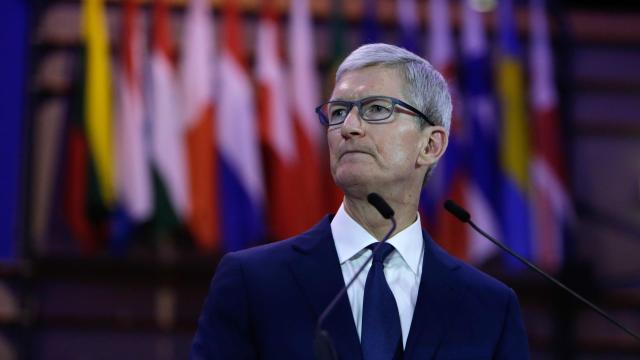The future is payment plans, and it is also a maelstrom of antitrust disputes. This is to say that the mutiny against Apple is making a little headway: the European Commission has announced two antitrust investigations into the iron rule of the App Store and Apple Pay.
The first investigation examines the App Store’s mandatory use of Apple’s payment processor for in-app purchases. They reference complaints from an e-book/audiobook distributor and Spotify, which filed an antitrust complaint with the EU about this last year.
Spotify has long protested that Apple takes a 30 per cent commission on purchases made through Apple’s payment system, pressuring Spotify to increase the price of its premium membership service while Apple Music gets to maintain lower prices. Spotify has opted to redirect users to a browser window in order to pay for the upgrade, and CEO Daniel Ek has said that Apple retaliated by blocking them from Siri, HomePod, and Apple Watch. According to the European Commission, Apple also forbids developers from informing consumers of typically cheaper alternatives. Gizmodo has reached out to Apple about the allegations and will update the post if we hear back.
Last year, Apple fired back at Spotify, accusing it of filching artists on the back end while expecting the Apple Store to provide “critical software development tools” and “a secure payment system” (“no small undertaking”) for free. Apple pointed to Spotify’s attempt to appeal a decision by the U.S. Copyright Royalty Board mandating that they increase royalty payments to artists. “This isn’t just wrong, it represents a real, meaningful and damaging step backwards for the music industry.” (Apple came off well in this, deciding not to join the appeal.) They have a point, Spotify isn’t exactly a hero, but it still doesn’t address the fact that there are no major App Store competitors for iOS.
The second investigation addresses Apple’s tap-to-pay system. In order to use it, customers almost always have to go through their pre-installed Apple Pay wallet at the point of sale. In 2017, a group of Australian banks tried to collectively bargain with Apple for tap-to-pay, or near-field communication tech (NFC) and lost. The Australian Competition and Consumer Commission found, among other things, that greater access to NFC would increase competition, but banks’ adoption could stifle other (unnamed) forms of mobile payment technology.
As Quartz noted last year, NFC looks to be taking over, anyway, at least in the EU. According to Quartz, payment processors complain privately about this, but “they’re not willing to pick a fight with a company that has a cash hoard of around a quarter of $US1 ($1.5) trillion. It’s better to be friends with the tech titan that controls the App Store and has deep relationships from Washington to Shenzhen.”
The European Commission has launched a number of antitrust investigations into tech companies. Last week, following a European Commission investigation, the EU announced plans to bring antitrust charges against Amazon for requiring third-party merchants to hand over data which enables Amazon to offer the same product for less. Over the past few years, the European Commission has hit Google with three separate antitrust fines totaling over $US9 ($13) billion.
While the U.S. has more or less sat back while tech companies have grown beyond leviathan proportions and corralled consumers into walled gardens, the government has lately been beating a path toward more antitrust regulation. A House Judiciary Committee antitrust investigation into Apple, Amazon, Facebook and Google is underway.
Last year, the U.S. Supreme Court ruled that App Store customers are direct customers of Apple, not of developers, as Apple has maintained; the decision allowed a group of app consumers to proceed with a suit over the App Store monopoly, and it opened up the company to more litigation. The U.S. Senate, too, has been seriously considering antitrust regulation of tech companies. Senator Amy Klobuchar, with Senator Richard Blumenthal and Senator Cory Booker, recently introduced a bill for The Anticompetitive Exclusionary Conduct Prevention Act, which would bolster the DOJ and FTC’s antitrust enforcement power and potentially exact civil penalties of up to 30 per cent of U.S. revenue.
So breaking up tech is politically popular! You love to see it. Apple won’t hand over a red cent without kicking and screaming.
